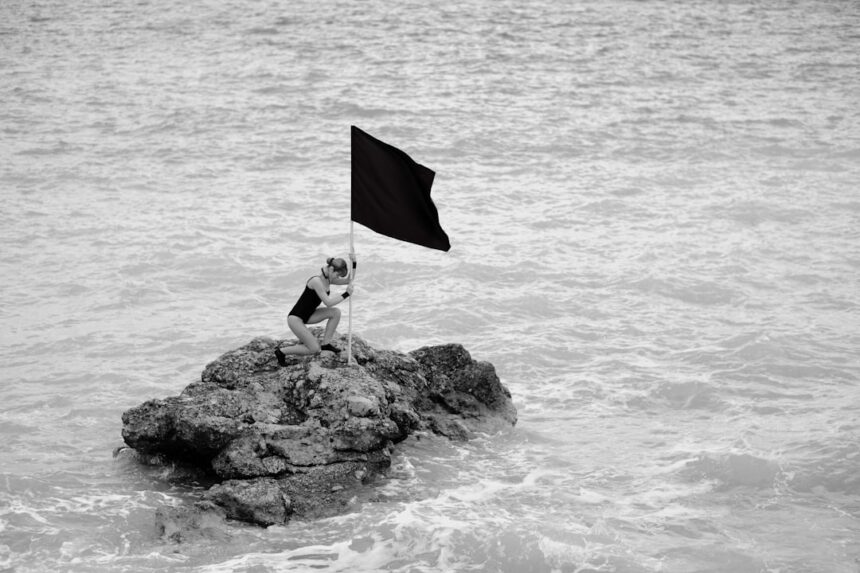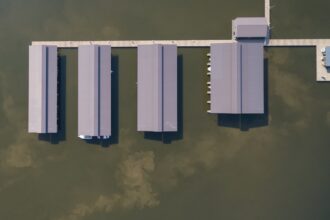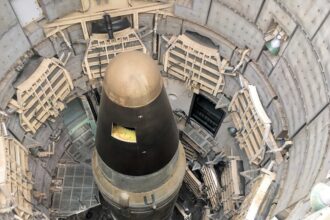The Iranian Revolution of 1979 marked a significant turning point in the geopolitical landscape of the Middle East. It was a culmination of widespread discontent against the Shah’s regime, which was perceived as oppressive and heavily influenced by Western powers, particularly the United States. The revolution led to the establishment of an Islamic Republic under Ayatollah Khomeini, fundamentally altering Iran’s relationship with the West.
This seismic shift not only transformed Iran’s internal politics but also set the stage for a series of confrontations with the United States, culminating in the Iran Hostage Crisis. In November 1979, a group of Iranian students stormed the U.S. Embassy in Tehran, taking 52 American diplomats and citizens hostage.
This act was fueled by a mix of anti-American sentiment and a desire to retaliate against U.S. support for the deposed Shah, who had been granted asylum in the United States. The hostage crisis lasted for 444 days, becoming a defining moment in U.S.-Iran relations and significantly impacting American domestic politics.
The crisis not only humiliated the U.S. government but also led to a reevaluation of American foreign policy in the Middle East, as it exposed vulnerabilities and ignited debates about national security and interventionism.
Key Takeaways
- The Iranian Revolution in 1979 led to the hostage crisis, where 52 American diplomats and citizens were held captive for 444 days.
- The United States responded with economic sanctions and a failed rescue mission, which damaged the reputation of President Carter.
- The need for a special operations unit became apparent, leading to the creation of Blackwater, a private military company.
- Blackwater played a significant role in the War on Terror, providing security and training services in Iraq and Afghanistan.
- Controversies surrounding Blackwater included allegations of human rights abuses, leading to increased scrutiny and legal challenges.
The United States’ Response to the Crisis
In response to the hostage crisis, the United States government found itself grappling with a complex situation that demanded both immediate action and long-term strategy. Initially, President Jimmy Carter attempted diplomatic negotiations to secure the hostages’ release, but these efforts proved futile. As public pressure mounted and the situation dragged on, Carter’s administration faced increasing criticism for its handling of the crisis.
The failed rescue mission, Operation Eagle Claw, in April 1980 further underscored the challenges faced by U.S. military forces in executing complex operations in hostile environments. The fallout from the crisis had profound implications for U.S.
foreign policy. It prompted a shift towards a more aggressive stance in the Middle East, as policymakers recognized the need for enhanced military capabilities and intelligence operations. The crisis also led to a reevaluation of America’s relationships with other nations in the region, as it became clear that traditional diplomatic approaches were insufficient in addressing the complexities of Middle Eastern politics.
This period marked the beginning of a new era in U.S. foreign policy, characterized by a greater reliance on covert operations and special forces to address emerging threats.
The Need for a Special Operations Unit

The Iranian Hostage Crisis highlighted significant gaps in U.S. military capabilities, particularly in terms of rapid response and counter-terrorism operations. The failure of Operation Eagle Claw underscored the necessity for a specialized unit that could operate effectively in high-stakes environments where conventional military forces might struggle.
As a result, there was a growing consensus among military leaders and policymakers that a dedicated special operations unit was essential for addressing future crises. In response to these needs, the U.S. military began to invest more heavily in special operations forces, leading to the expansion of existing units like the Navy SEALs and the establishment of new ones such as Delta Force.
These elite teams were designed to conduct covert missions, gather intelligence, and execute high-risk operations with precision and speed. The lessons learned from the Iranian crisis served as a catalyst for this transformation, emphasizing the importance of agility and adaptability in modern warfare.
The Creation of Blackwater
| Metrics | Data |
|---|---|
| Author | James Lee Burke |
| Published | 1983 |
| Genre | Crime fiction |
| Setting | Louisiana |
| Main Characters | Dave Robicheaux, Clete Purcel |
As the demand for specialized military services grew, private security firms began to emerge as key players in the defense landscape. One such company was Blackwater, founded in 1997 by former Navy SEAL Erik Prince. Initially established as a training facility for law enforcement and military personnel, Blackwater quickly evolved into a private security contractor that would play a pivotal role in U.S.
military operations abroad. The company’s rise coincided with an increasing reliance on private contractors by the U.S. government, particularly during conflicts in Iraq and Afghanistan.
Blackwater’s unique positioning allowed it to capitalize on the changing dynamics of warfare and security needs. With its highly trained personnel and flexible operational capabilities, Blackwater offered services ranging from security detail for diplomats to direct support for military operations. This shift towards privatization reflected broader trends in defense spending and resource allocation, as governments sought cost-effective solutions to complex security challenges without committing large numbers of troops.
Blackwater’s Role in the War on Terror
Following the September 11 attacks in 2001, Blackwater’s role expanded significantly as the United States launched its War on Terror. The company quickly became one of the primary contractors for security services in Iraq and Afghanistan, providing protection for U.S. officials and military personnel operating in increasingly dangerous environments.
Blackwater’s personnel were often deployed alongside conventional forces, filling critical gaps in security and logistics that arose from rapid military engagements. The company’s involvement in high-profile missions further solidified its reputation as a key player in U.S. military operations abroad.
Blackwater operatives participated in various missions that included convoy protection, intelligence gathering, and direct engagement with hostile forces. Their presence on the ground allowed U.S.
Controversies Surrounding Blackwater

Despite its successes, Blackwater was not without controversy. The company’s operations were often marred by allegations of excessive force and unaccountability, leading to significant scrutiny from both domestic and international observers. One of the most notorious incidents occurred in September 2007 when Blackwater contractors killed 17 Iraqi civilians in Nisour Square, Baghdad.
This event sparked outrage and led to widespread condemnation of Blackwater’s practices, raising serious questions about the rules of engagement for private security contractors operating in conflict zones. The Nisour Square incident prompted investigations by both U.S. authorities and international bodies, highlighting concerns about oversight and regulation within private military companies.
Critics argued that Blackwater’s actions undermined U.S. efforts to win hearts and minds in Iraq and damaged America’s reputation abroad. As public outcry grew, calls for greater accountability and transparency within private security firms intensified, leading to legislative efforts aimed at regulating their activities more effectively.
Blackwater’s Expansion and Influence
In the years following its controversial actions in Iraq, Blackwater continued to expand its influence within the defense contracting industry. The company diversified its services beyond security provision to include training programs for foreign military forces and law enforcement agencies worldwide. This expansion allowed Blackwater to position itself as a comprehensive security solution provider, catering to various clients ranging from government agencies to multinational corporations.
Blackwater’s growth was fueled by lucrative government contracts that capitalized on ongoing conflicts and instability around the globe. As nations grappled with terrorism and insurgency threats, private security firms like Blackwater became increasingly integral to national defense strategies. This trend raised concerns about the privatization of military functions and the implications for democratic accountability, as private companies operated with less oversight than traditional military forces.
Blackwater’s Involvement in Iraq and Afghanistan
Blackwater’s involvement in Iraq and Afghanistan became emblematic of the broader reliance on private contractors during these conflicts. In Iraq, Blackwater provided security for high-profile officials, including U.S. ambassadors and military commanders, while also engaging directly with local populations through various initiatives aimed at stabilizing regions affected by violence.
Their presence was often seen as both a necessary measure for ensuring safety and a source of tension within local communities. In Afghanistan, Blackwater played a similar role, providing security services amidst an increasingly complex battlefield environment characterized by insurgency and shifting allegiances among local factions. The company’s operatives were frequently deployed alongside U.S.
Special Forces units, conducting missions that required rapid response capabilities and specialized training. However, their involvement also raised ethical questions about the use of private contractors in combat situations and their impact on civilian populations caught in the crossfire.
Blackwater’s Impact on US Foreign Policy
Blackwater’s rise coincided with significant shifts in U.S. foreign policy during the early 21st century. The increasing reliance on private contractors reflected broader trends towards outsourcing military functions as part of a strategy to manage conflicts without committing large numbers of troops or resources.
This approach allowed policymakers greater flexibility but also raised concerns about accountability and oversight within military operations. The company’s actions often influenced public perception of U.S. foreign policy initiatives, particularly in regions where American interests were at stake.
Incidents involving Blackwater operatives contributed to growing skepticism about U.S. intentions abroad and fueled anti-American sentiment among local populations affected by their operations. As such, Blackwater’s presence became intertwined with broader narratives surrounding American interventionism and its consequences on global stability.
The Fall of Blackwater
Despite its initial successes, Blackwater faced mounting challenges that ultimately led to its decline as a prominent player in the defense contracting industry. Following several high-profile incidents that drew public ire and scrutiny from lawmakers, Blackwater underwent significant reputational damage that proved difficult to overcome. In 2009, following ongoing investigations into its conduct during operations in Iraq, Blackwater rebranded itself as Xe Services LLC in an attempt to distance itself from its controversial past.
However, rebranding did little to alleviate concerns about accountability or oversight within private military companies more broadly. As public sentiment shifted against privatized warfare following years of conflict in Iraq and Afghanistan, calls for greater regulation intensified. By 2014, Xe Services was sold off amid ongoing controversies surrounding its practices, marking a significant decline from its once-dominant position within the industry.
Legacy of Blackwater
The legacy of Blackwater remains complex and multifaceted, reflecting broader debates about privatization within national security frameworks and military operations globally. While it played an instrumental role during critical moments in U.S. history—particularly during the War on Terror—its controversial actions also sparked important discussions about ethics, accountability, and oversight within private military contracting.
As nations continue to grapple with evolving threats posed by terrorism and insurgency worldwide, lessons learned from Blackwater’s rise and fall will likely inform future policies regarding private security firms’ roles within national defense strategies. Ultimately, Blackwater serves as both a cautionary tale about unchecked power within privatized warfare and an example of how modern conflicts necessitate innovative approaches to security challenges faced by governments today.
The Iran crisis played a pivotal role in the emergence of private military companies like Blackwater, as geopolitical tensions and the demand for security services surged. This phenomenon is explored in depth in various analyses, including a related article on the dynamics of private military firms and their influence on global security. For further insights into how these companies have shaped modern warfare and their controversial roles, you can read more in this article on the topic. This piece delves into the intricate relationship between international conflicts and the privatization of military operations, offering a comprehensive overview of the subject.
WATCH THIS! From Tehran to Blackwater: The Real Story
FAQs
What is the Iran crisis?
The Iran crisis refers to the ongoing tensions and conflicts between Iran and other countries, particularly the United States, over issues such as nuclear proliferation, regional influence, and human rights violations.
What is Blackwater?
Blackwater is a private military company (PMC) that provides security, training, and logistics services. It was founded in 1997 by Erik Prince and was later renamed Academi.
How did the Iran crisis create Blackwater?
The Iran crisis led to increased demand for security and military services in the region, creating opportunities for private military companies like Blackwater to provide their services to governments and other clients.
What role did Blackwater play in the Iran crisis?
Blackwater and other private military companies have been involved in providing security and logistical support in conflict zones, including those affected by the Iran crisis. They have also been involved in training local forces and providing other services to governments and organizations operating in the region.




